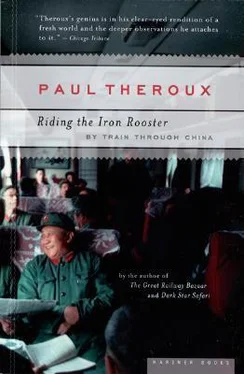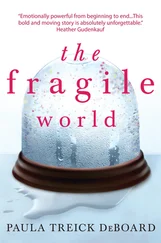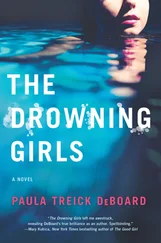Wilma, the bald girl, said, "I haven't seen anyone use those postcards for years."
And then I regretted that I had told her I was sending them back home, because it gave her the excuse to ask me where I was from.
"I do a little teaching," I said to Wilma.
As far as I could tell there were no readers in the group, no one likely to buttonhole me after lunch to talk about American fiction, or to be threatened by my scrutiny. I liked being a teacher. I liked the way the others looked at me and thought: Poor guy, doesn't seem to have a lot to say, might as well leave him alone.
It was extremely hard for me to appear to be a quiet, modest, incurious person. These people seemed to be illiterate, which was a virtue, because they didn't know me. But neither could they be trusted with the slightest piece of information. Not long after I told Wilma I happened to be living in London, Richard Cathcart came up to me and said, "I hear you live in London…"
At Namur, Bud Wittrick confided to me that Belgium was a hell of a lot uglier than America, and when I agreed that it did look hideous, he said, "You said it, Paul!"
When had I told him my name?
The only empty seat in the dining car at lunch was next to Wilma. It seemed as though everyone was avoiding her, but when I sat with her everyone avoided me. She told me she had been fired from her job, selling toys somewhere in London. She complained that the New Zealanders had made a hoo-hah about her immigrating, but that she was going there just the same, probably for good. She said she liked a challenge.
I made a note of the fact that we had just stopped at Liège. I had an idea that I could look it up later and write We passed Liège, famous for its lacemaking and its sausages, birthplace of Georges Simenon…
Wilma said, "You're always writing."
"No, I'm not," I said, too quickly, and I thought: Stop looking at me!
I dozed after lunch and was awakened by Morris saying, "Hey, Kicker, it's Aachen!" And both men stood in the aisle, blocking the traffic.
It was obvious that the Germans on the train were very irritated by these two loud Americans, and would probably have been very glad to throw them off. It was unlikely that the Germans were able to follow the loud twanging monologue in which Morris revealed that he had been in the three-week battle for Aachen during the war. This monkey was a liberator! It seemed poetic justice that he had returned to bore the pants off everyone within earshot.
At Cologne I noticed that there were four new people on the tour. They were French — three women and a man. They stayed together. They spoke to no one except themselves for almost the whole trip. They quarreled a great deal, but no one knew why. About one month later, in southern Mongolia, I saw one of these French women standing alone on a railway platform. We had just eaten a disgusting meal of cold potatoes and mutton fat.
I smiled and said in a companionable way, "Isn't the food dreadful?"
"When I am traveling I don't notice the food," this woman said. "But of course when I am in Paris I am very particular about what I eat and demand only the best."
That was all she ever said to me.
Even here in Germany I could tell that the French members of the tour were not extroverts. But that was fine. I was also keeping to myself, and it was agreeable not to be pestered with questions.
It was near the end of a long day. We passed Wuppertal, piled against a hillside — full of steep ugly tenements. There were slag heaps at Unna, and farther on at Hamm and Gütersloh, it seemed as though the Germans had succeeded in miniaturizing Indiana and putting it down here. The rain blackened Bielefeld, and I prayed for night to fall and simplify this landscape with darkness. Prosperity had disfigured Germany, and the whole country looked blighted with industrial civilization. Under the brown sky of Münsterland there were factories called Droop und Rein and Endler und Kumpf, which seemed like doom-laden names. The peculiar dreariness about this part of Germany was the absence of trees. The Germans identified with forests, but acid rain had killed half of them and the other half had been chopped down; the trees had been replaced with factory chimneys.
Earlier in the day, the people in the group had been talking like patients in a hospital. The travel had frightened and tired them. They dozed, and when they woke they asked each other questions. How did you sleep? How was the meal? What time is dinner? They began to describe the progress of their bowels. They reported on how they felt, and whether they were tired or hungry.
I watched closely for meaningful changes — women who begin to screech, men who stop shaving, or anyone who puts on a tracksuit.
At Helmstedt we crossed the border into East Germany. The train passed between a pair of barbed-wire fences, a passageway about as wide as a turnpike. Every few hundred yards there was a watchtower and bright lights and the silhouettes of soldiers standing sentry duty.
Beyond the border was a landscape of snow and mud — the spring mess in the slender trees of the postwar woods. What cities I could see seemed far drearier than any I had seen in West Germany, but the countryside was noticeably wilder and more wooded, with huddled farms and poorly lit roads. There were not many people visible, but those I saw here really did look like peasants.
We arrived at Zoo Station ("Hold on to your handbags, this place is full of drug addicts") in the dark. With its twinkling lights and the traffic, Berlin seemed romantic and lively to some members of the group — they regarded it as the last frontier of civilization. After this was Poland, then Russia, then Mongolia. Berlin was gaiety and sex, bookstores and fatsos. It looked richer than America.
But Berlin seemed to me a monstrosity and not much fun. It is such an odd specimen, such a special example of metropolitan schizophrenia, that its conceits and hypocrisies are fascinating. But it is also a fool's paradise, and it is hard to think of anyone living there for any length of time and remaining sane. It is an ancient city, and it was itself for 700 years; but under the Nazis it cracked, it stopped being a city and became a symbol, and then an idea, and after the war it was rethought and the idea reduced to an absurdity. It is still a bad idea and it is growing worse. Any sensible person has to find it a monumental illustration of stupidity, petulance and stubbornness. It would be laughable if it were not so pathetic, for as Nathanael West said, nothing is sadder than the truly monstrous.
Helmut Frielinghaus, a Düsseldorfer, was himself a visitor to the city. He said to me, "Do you want to see the most interesting place in Berlin?"
I said yes.
He took me to the "Ke De We," a huge department store that is known by its initials rather than its full name, Kauíhaus des Westens. What he wanted to show me were the floors devoted to food, and in particular the stalls and shops that retailed expensive and pretty delicacies.
'This is the new thing," Helmut said. 'The food culture. People are obsessional about it. You see? Two hundred kinds of cheese, forty kinds of coffee, twenty-eight sizes of sausage, and also food for vegetarians, food for health cranks, a whole shop selling fish eggs."
They were food boutiques, selling snob food, rare and indigestible items, all prettily arranged and beautifully wrapped. Pastries, fruit juice, ninety kinds of bread, a whole wall of tea caddies, every possible shape of pasta. At first glance it was not food at all, but specialist merchandise set out like expensive clothes. If there was such a thing as designer food, this was it. Perfect penile asparagus, each spear labeled, $20 a pound.
I developed a horror-interest in the meat section, where stall upon stall was laden with cuts of meat — gleaming red flesh that had been trimmed with great care: legs, shoulders, feet, rumps and elbows, a whole rack of tongues, a case of hearts, a brisket with a paper cap, pigs' heads wearing ruffled collars. Most of the meat was decorated in this way — a sort of dramatic presentation, so that the last thing you thought of was slaughter or butchery.
Читать дальше












